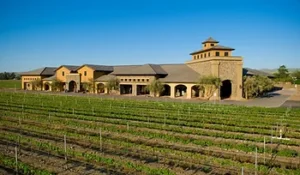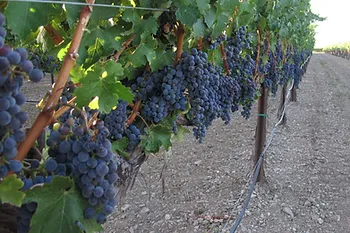Wine consumption has increased during the pandemic, but an increasing number of consumers don’t just want to know what grape varietals are going into the bottles, they want to know what else goes into making the wine. Being biodynamic is as much of a selling point for wineries as competition wins and prized grape varietals, though Northern California wineries are showcasing their efforts to be sustainable in their wine production has been a deliberate choice for years, or even decades. While each winery has their own take on sustainable production, the various owners and winemakers keep current growing conditions and climate change in mind, explaining why being “sustainable” is their responsibility and not a sales pitch to push bottles. As direct examples, Concannon and Retzlaff in Livermore, as well as Imagery Estate and Benzinger in Glen Ellen, sustainable production continues to be a focus.
In the Livermore Valley, Concannon displays its history with pride, as it’s timeline is the first thing visitors see upon entering. Founded in 1883, it is America’s oldest continually operating winery, where it’s hallowed “Cabernet Clones” grew off a single vine brought from Chateaux Margaux in France by founder John Concannon. While Concannon’s sustainability initiative didn’t begin in 1883, its drive towards environmental initiatives makes it an early leader in not only California, but the entire United States through its help in developing the Code of Sustainable Winegrowing Practices. In 2009, Concannon was one of the 17 California wineries that was part of the California Sustainable Wine Growing Alliance’s pilot partner program, which tested the efficacy of the organization’s guidelines and cemented the process that certified wineries follow today. Alongside this, Concannon was one of the first 13 wineries to be certified under the CSWA in 2010, anchoring their commitment to the rigorous processes needed to step up existing conservation practices.

A stone’s throw away from Concannon, Retzlaff Vineyards keeps sustainability at the forefront, with it being the only California Certified Organic Vineyard in the greater San Francisco Bay Region. Occupying the site of a former sheep ranch, no pesticides or herbicides have been used on their land, making the soil prime organic growing land. Their grapes do not have leftover chemical residue as a result, which is believed to produce wines with great complexity and authenticity through their perceived clean and bright energy in each grape varietal. Robert Taylor, the founder of Retzlaff, is a Ph.D geochemist, whose understanding of the environmental impacts of harmful chemicals has led to the vineyard’s passion for organic practices. It is their belief that their commitment to organic practices leads to not only superior wine, but the overall health of their customers, the community, and the environment they occupy.
In Sonoma, Benziger Winery sits in the middle of rich history, from its 19th century owners, the literary figures who resided in the area, and how sheep grazing naturally maintained the property grounds. Benziger came to be when the titular family moved to the area in the 1980s, at a time when integrated pest management and organic farming was a rarity. This was the era of harmful pesticides, which was utilized generously against insects and mildew, leading to a migration of even normal animals from farmlands. The Benziger Winery found that switching to biodynamic farming heightened the quality of their grapes, as the pesticides prevented the vines from developing correctly, and didn’t allow the roots to properly access the soil’s nutrients. Upon their adapting, they found that their previous grapes were beautiful, but they lacked the flavor that sets apart quality wine from others.
Today, many of Livermore, Napa, and Sonoma Valley’s wineries have an environmental focus within their farming practices, not because it will help them sell, but because of the responsibility they have to conservation, alongside noticed improvements with their products. While it can be written about, one can experience the benefits of sustainable growing by visiting the area’s wineries, and we at eXtraordinary Tour Services encourage the reader to experience it through an all-inclusive wine tour!

